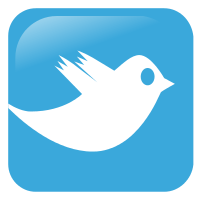Poynter covered a South by Southwest panel of media gurus who discussed how social media has affected the way we write and speak. The panelists included Fast Company’s Neal Ungerleider; McKinney’s Gail Marie; Digitaria’s Kristina Eastham; and Sean Carton, director for digital communication commerce and culture at the University of Baltimore.
They said that journalistic use of social media actually encourages writers to proofread because they are being read immediately by a large audience who will point out errors. The social media sphere also offers journalists the chance to become the cream of the crop with their writing: with so many people delegating themselves to a wonky shorthand, a well-constructed sentence will catch the smart reader’s eye.
In addition to advancing our lexicon with terms like “friended” and “liked,” social media reminds us that changes in language don’t necessarily reflect degeneration, but more likely a shift we must embrace and try to preempt. It should make us excited that diction and syntax is so malleable.
And online media has taught us to value short storytelling, which can often be more interesting because it forces the writer to fill the post with meaning. “Shorter is better–if you can do it well,” Gail Marie said at the panel. “It takes some level of skill.”











